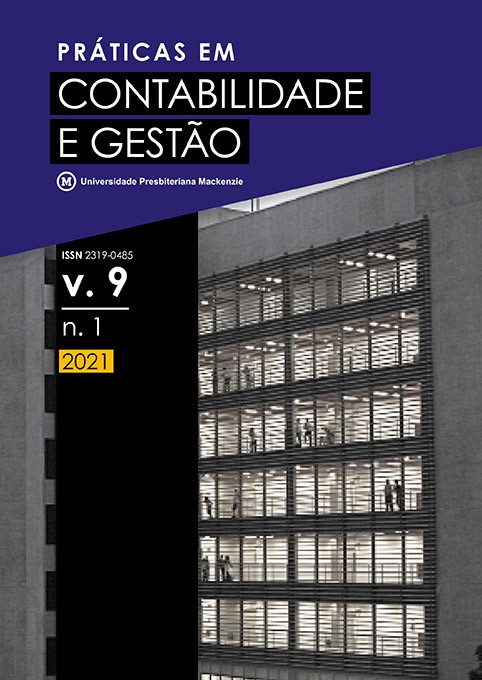The electric car market in Brazil: analysis of barriers and suggestions for expansion
Keywords:
Electric vehicles, Resource based theory, Urban mobility, Infrastructure, SustainabilityAbstract
This report focuses on the issue of barriers observed for the expansion of the adoption of electric vehicles in Brazil. If there is a growing global demand for lower carbon emissions and other polluting gases, this research aims to understand how such vehicles have not yet had a more significant insertion in the market. Supported by the resource based theory (RBT), this study suggests that more investment in innovation, research and development is needed to achieve a differentiated resource in the market. As the methodology here does not involve metrics results, a qualitative survey of the data was made, paying attention to secondary data collected through theoretical framework. The hypothesis is that if there is already a considerable appeal to adopt more sustainable means of transport, which imply less environmental impact and more energy efficiency, there are probably technical and/or structural barriers, so that growth does not happen. In addition to the social issues that limit the purchase of electric vehicles, the main results indicate infrastructure problems for refueling, the need for batteries with greater autonomy and technical adjustments to adapt the recharges. After a detailed description of the technical issues surrounding the subject, the final considerations point to the fact that growth requires strategic partnerships that will make the electric vehicle a differential for companies that best take advantage of the innovation feature that involves this product.Downloads
References
Agência Internacional de Energia (International Energy Agency – IEA). World energy outlook
: A world transformation. Recuperado de https://www.iea.org/reports/world-energy-
-outlook-2017. Último acesso em 12/10/2020.
Barney, J. B. (1991). Firm resources and sustained competitive advantage. Journal of Management,
(1), 99-120.
Barney, J., Clark, D. N. (2007). Resource-Based Theory. New York: Oxford.
Cadernos de Carros Elétricos (2017). Cadernos FGV Energia. ano 4, 7. ISSN 2358-5277. Recuperado
de https://fgvenergia.fgv.br/sites/fgvenergia.fgv.br/files/caderno_carros_eletricos-
fgv-book.pdf.
Confira os carros elétricos que chegam ao Brasil em 2020 (2020). Exame. Recuperado de
https://exame.com/negocios/confira-os-carros-eletricos-que-chegam-ao-brasil-em-2020/.
Cordeiro, A. C. (2018). Os desafios do processo de difusão do carro elétrico no Brasil. Encontro
Nacional de Economia Industrial e Inovação. Indústria e Desenvolvimento Econômico:
Desafios e Perspectivas, 3. Uberlândia, Minas Gerais.
Empresa de Pesquisa Energética (2020). Matriz energética e elétrica. Portal EPE. Recuperado
de https://www.epe.gov.br/pt/abcdenergia/matriz-energetica-e-eletrica.
Gil, A. C. (2018). Como elaborar projetos de pesquisas (6a. ed.) São Paulo: Atlas. ISBN 978-85-
-01292-7
Brito, E. P. Z., Morganti, F., Brito, L. A. L. B (2009). Inovação e o desempenho empresarial:
Lucro ou crescimento? RAE, 8, (1).
Mansfield, E (1962). Entry, Gibrat’s law, innovation, and the growth of firms. The American
Economic Review, 52(5), 1023-1051.
Motohashi, K. (1998). Innovation strategy and business performance of Japanese manufacturing
firms. Economics of Innovation and New Technology, 7(1), 27-52.
Nada de elétricos: Por que Brasil continuará sendo a terra dos carros flex? (2020). Uol. Recuperado
de https://www.uol.com.br/carros/colunas/primeira-classe/2020/10/05/carro-eletrico-
tera-espaco-no-mercado-brasileiro-a-curto-prazo.htm.
Neto, R. S. (2018). Estrutura de mercado das empresas automobilísticas: Análise da concentração
no Brasil (monografia de especialização). Universidade Federal do Paraná, Curitiba.
Silva, E. R. (2011). Análise do crescimento da motorização no Brasil e seus impactos na mobilidade
urbana (dissertação de mestrado). Universidade Federal do Rio de Janeiro, Rio de
Janeiro.
Vale a pena ter um carro elétrico no Brasil? Veja prós e contras (2020). TechTudo. Recuperado
de https://www.techtudo.com.br/noticias/2020/08/vale-a-pena-ter-um-carro-eletrico-
no-brasil-veja-pros-e-contras.ghtml.




